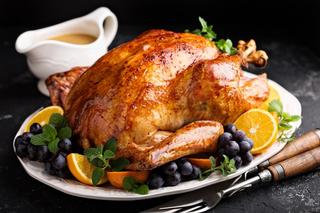Holiday Feasts From Heritage Poultry Breeds
Continuing unique traditions gives more than taste


Raising heritage breeds for holiday feasts involves following age-old practices that prioritize preserving genetic diversity and cultural heritage. These breeds are often raised using traditional methods, such as sustainable farming and pasture raising, allowing them to develop distinctive flavors that connect us to the past and enhance the holiday dining experience.
What is Heritage poultry?
“Heritage Poultry” refers to traditional breeds of chickens, turkeys, ducks, and other fowl that have been raised for many generations without extensive modification for industrial production. These breeds typically have specific characteristics that were valued by traditional farmers, such as hardiness, adaptability, flavor, and the ability to reproduce naturally. Heritage poultry are slower growing birds due to not being commercialized.
The heritage breeds often have distinct appearances, behaviors, and taste profiles compared to modern commercial breeds. They are raised for both meat and egg production, and many people appreciate them for their historical significance, genetic diversity, and unique culinary qualities.
Differences between store-bought and heritage poultry?
The difference in flavor between traditional raised meat and store-bought meat can stem from factors from factors like the bird’s diet, exercise, and living conditions. Traditionally-raised meat may have a more distinctive taste due to the bird’s varied diet and natural lifestyle; conversely, store-bought meat might have a more standardized taste from controlled conditions and uniform feed.
Let’s get acquainted with breeds of turkeys, chickens, ducks and geese that are historically used for traditional holiday meals. Each has their own unique characteristics, traits, and meat flavor profiles.
As with any meat, individual preferences and cooking methods can play a role in the final taste experience.
Heritage Turkeys
Some heritage breeds of turkey that are raised for the holidays include the Narragansett, Bourbon Red, Standard Bronze, Jersey Buff, and White Holland. These breeds offer unique flavors and characteristics that make them popular for a wide range of palates
The Narragansett
The Narragansett turkey is known for its calm disposition. They have good maternal traits, produce eggs sooner than other breeds, and free range well. Their meat is tender and often has a gamey taste.
The Bourbon Red
The Bourbon Red turkey, known for its delicious and flavorful meat, has a taste that is often described as rich, savory, and slightly sweet. The meat of the Bourbon Red turkey has a good balance between lean and well-marbled sections, contributing to its tenderness and flavor.
Standard Bronze
The Standard Bronze has been the most popular turkey variety for most of American history. Most of the standard bronze variety are now being used as hybrids for fast-growing Thanksgiving turkeys in the turkey industry. The meat of the heritage bronze turkey is known for its rich flavor and texture. The meat tends to be juicier and more tender compared to today's modern commercial turkey.
Jersey Buff
The defining characteristic of the Jersey Buff turkey is a very light or reddish-brown plumage. This trait drew interest from breeders as the light feathers of the breed present an easier, cleaner carcass, making it more representable to the eye. The meat is rich in flavor, tender, and has the more traditional taste compared to commercial commercial turkeys.
White Holland
The White Holland turkey meat is known for being tender, juicy, and flavorful, making it a popular choice among those who value traditional and delicious poultry. The breed is often used for roasting and can be a centerpiece of festive meals due to the exceptional taste and texture.
Heritage Chickens
Just like turkeys, heritage chicken breeds often have unique characteristics, hardiness, and flavors that connect us to our agriculture history. Some heritage chicken breeds that are grown for the holidays include the Plymouth Rock, Rhode Island Red, Orpington, Sussex, and Wyandotte.
Rhode Island Red
Rhode Island red chickens’ meat taste is rich and savory, with a slightly gamey and earthy undertone, many say. The meat can be juicy and succulent when cooked properly, making it desirable among poultry enthusiasts and chefs.
Plymouth Rock
Plymouth Rock chickens typically have meat that is flavorful, tender, and relatively mild in taste. The flavor profile is often described as well- balanced, with a combination of savory and slightly sweet.
Orpington
The taste of Orpingtons is often described as rich, juicy, and tender, with a slightly gamey and robust flavor profile. The meat can have a good amount of fat, contributing to its tenderness and taste.
Sussex
Sussex chickens have meat that is flavorful, juicy, and tender. Their taste is often described as well- balanced, with a mild and slightly sweet flavor profile. The meat is known for its succulence and can be enjoyed in various cooking methods.
Wyandotte
The meat from Wyandottes has a taste often related as rich, succulent, and slightly more intense than some other chicken breeds, with a good balance between savory and slightly gamey.
Heritage Ducks
Ducks are used at times for holiday meals. Like the turkeys and chickens, heritage ducks are older breeds that have not been selectively bred for commercial production. The two most used duck species for holidays are Pekins and Muscovy Duck.
Pekins are known for their tender, juicy meat and are popular roasters. Muscovy ducks are known for their lean and flavorful meat.
Christmas Goose
The tradition of serving a Christmas goose dates back centuries in many cultures. Roasting a goose for Christmas dinner symbolizes a festive and indulgent meal. The rich and flavorful meat of the goose is often accompanied by various sides and trimmings, creating a special holiday feast that brings family and friends together.
Setting the table
Traditional heritage poultry breeds tend to get forgotten with the fast-paced commercial poultry industry that dominates, and the flavors of poultry are slowly disappearing.
Raising heritage breeds for holiday feasts involves preserving traditional farming practices and celebrating the unique qualities of these breeds, while enjoying savory meals with the family.
About the author
Alexandra Doss has been working with poultry for over 18 years. Known as the Quail Lady, as Coturnix quail was her first specialty on her selective breeding operation, Stellar Game Birds, Poultry, Waterfowl LLC in Florida. She has written two books on Coturnix husbandry. She and her husband focus on breeding heritage animals and breed preservation.
August 24, 2023
Tags:Healthy Flock

Chicken Whisperer is part of the Catalyst Communications Network publication family.











